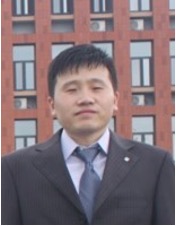Development of MGI Software for Materials Calculations
and Its Application on Cladding Materials
Du Shiyu1,2*
1 Harbin Engineering University
2
Ningbo Institute of Materials Technology and Engineering, Chinese Academy of Sciences
ABSTRACT: With
the promotion of Materials Genome Initiative technology, how to promote the
efficient application of this technology in the development of nuclear energy
materials has become an important topic in the nuclear industry. In accordance
with the requirements of National Key R&D Program of MGI, our group
designed and developed the MGI simulation software platform MAGMISS, and
carried out in-depth research on the nuclear structural materials FeCrAl multi-scale
coupling models and the application of artificial intelligence algorithm in
material science field. Specific research contents are as follows:
(1) Construction
of high-throughput and multi-scale theoretical simulation platform. According
to the requirements of major projects, we have developed a multi-scale genome
design software platform for advanced nuclear fuel cladding materials. The
platform includes three core functions: high-throughput multi-scale theoretical
simulation task submission and management, material artificial neural network
based gene optimization design, and material gene database management. The
platform could help users to realize the submission of high-throughput and
multi-scale coupling theoretical computing tasks on supercomputing platform
through web browser, and has the functions of computing task fault tolerance
and process monitoring, and supports the visualization of calculation results
and the optimization design of materials based on artificial intelligence
algorithm, which provides software support for the development of material
genomic method.
(2) Multi-scale
coupling method of alloy materials. Since the single-scale theoretical model is
difficult to describe the changes of microstructure and properties of alloys
from micro to macro, we have established a series of coupled theoretical models
of nano atomic scale, micro defect scale, meso grain size scale and macro
scale, and predicted the genetic parameters of materials through the first
principles, molecular dynamics, phase field and finite element coupling
multi-scale simulation method. In particular, a multi-scale coupling algorithm
based on crystal plasticity is designed for FeCrAl and ZrNb alloy cladding
materials and applied to predict the influence of material genetic parameters
on mechanical properties such as yield strength. The accuracy of the model is
verified by comparing with the experimental results.
(3) Application of
artificial intelligence algorithm in material development. We have applied
artificial intelligence algorithms to the development and optimization of new
materials, and gained new knowledge in material preparation and performance
prediction. In the development of artificial neural network force field, we
found that adding nuclear charge information can effectively improve the
resolution and calculation efficiency of force field for different elements and
materials. At the same time, our Hume-Rothery criterion model could accurately
judge the thermodynamic stability of MAX phase materials, which provides
theoretical guidance for the selection and preparation of MAX phase materials.
Keywords: Materials Genome Initiative;High throughput calculation; Multiscale simulation; FeCrAl Alloy; artificial intelligence algorithm.

Shiyu Du is a full Professor in the Ningbo Institute of Materials Technology and Engineering, Chinese Academy of Sciences since 2014. Up to now, he has published over 170 peer-reviewed research articles in journals such as Nature Communications, Proc. Nat. Acad. Sci., J. Am. Chem. Soc., Angew. Chem. Int. Ed., ACS Nano, Nanoscale, ACS Appl. Mater. Inter. Now he is working on the Chinese national key research and development program as the chief scientist. His major research interest is on the structural design and characterization of various energy and structural materials such as nuclear materials by the strategy of Materials Genome Initiative and the multiscale computer simulation method.